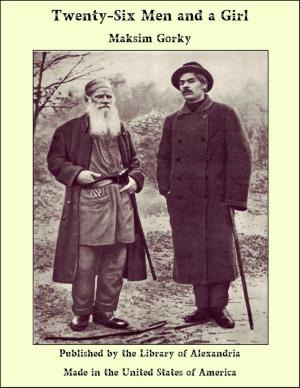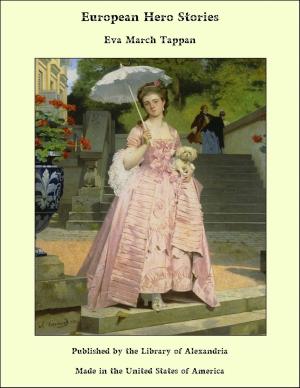| Author: | Aleksandr Sergeevich Pushkin | ISBN: | 9781465591890 |
| Publisher: | Library of Alexandria | Publication: | March 8, 2015 |
| Imprint: | Language: | English |
| Author: | Aleksandr Sergeevich Pushkin |
| ISBN: | 9781465591890 |
| Publisher: | Library of Alexandria |
| Publication: | March 8, 2015 |
| Imprint: | |
| Language: | English |
AT the end of 1811—an epoch memorable to us—there lived on his estate Nenaradovo kind Gavril Gavrilovitch R. He was renowned in the district for his friendliness and hospitality ; neighbours came to his house at every hour of the day to have a meal and a drink, to play a game of cards for five copecks stakes with his wife, and some to have a look at their daughter, Marya Gavrilovna, a pale and graceful girl of seventeen. She was considered an heiress, and many thought of her as a good match for themselves or for their sons. Marya Gavrilovna was brought up on French novels, and consequently was in love. She selected as the subject of her affections a poor army lieutenant, staying on leave in his country place. It is needless to say that the young man was burning with equal passion, and that the parents of his ladylove, observing their mutual inclination, forbade their daughter to think of him, and received him worse than a retired assessor. The lovers kept up a correspondence and met alone every day in the pinewood or by the old wayside chapel. There they exchanged vows of eternal love, complained of their fate, and made various plans. In their letters and conversations they, quite naturally, arrived at the following argument: if we cannot breathe without each other, and the cruel parents’ will prevents our happiness, couldn’t we do without their consent? Of course this fortunate idea occurred first to the young man, and strongly appealed to Marya Gavrilovna’s romantic imagination. Winter came and put a stop to their meetings, but their correspondence grew all the more lively. In every letter Vladimir Nicolaevitch implored her to trust herself to him, marry him secretly, remain in hiding for a time, and then fall at the feet of her parents who would of course be touched by the lovers’ heroic constancy and unhappiness and be sure to say to them: ‘Children, come to our arms!’
AT the end of 1811—an epoch memorable to us—there lived on his estate Nenaradovo kind Gavril Gavrilovitch R. He was renowned in the district for his friendliness and hospitality ; neighbours came to his house at every hour of the day to have a meal and a drink, to play a game of cards for five copecks stakes with his wife, and some to have a look at their daughter, Marya Gavrilovna, a pale and graceful girl of seventeen. She was considered an heiress, and many thought of her as a good match for themselves or for their sons. Marya Gavrilovna was brought up on French novels, and consequently was in love. She selected as the subject of her affections a poor army lieutenant, staying on leave in his country place. It is needless to say that the young man was burning with equal passion, and that the parents of his ladylove, observing their mutual inclination, forbade their daughter to think of him, and received him worse than a retired assessor. The lovers kept up a correspondence and met alone every day in the pinewood or by the old wayside chapel. There they exchanged vows of eternal love, complained of their fate, and made various plans. In their letters and conversations they, quite naturally, arrived at the following argument: if we cannot breathe without each other, and the cruel parents’ will prevents our happiness, couldn’t we do without their consent? Of course this fortunate idea occurred first to the young man, and strongly appealed to Marya Gavrilovna’s romantic imagination. Winter came and put a stop to their meetings, but their correspondence grew all the more lively. In every letter Vladimir Nicolaevitch implored her to trust herself to him, marry him secretly, remain in hiding for a time, and then fall at the feet of her parents who would of course be touched by the lovers’ heroic constancy and unhappiness and be sure to say to them: ‘Children, come to our arms!’















